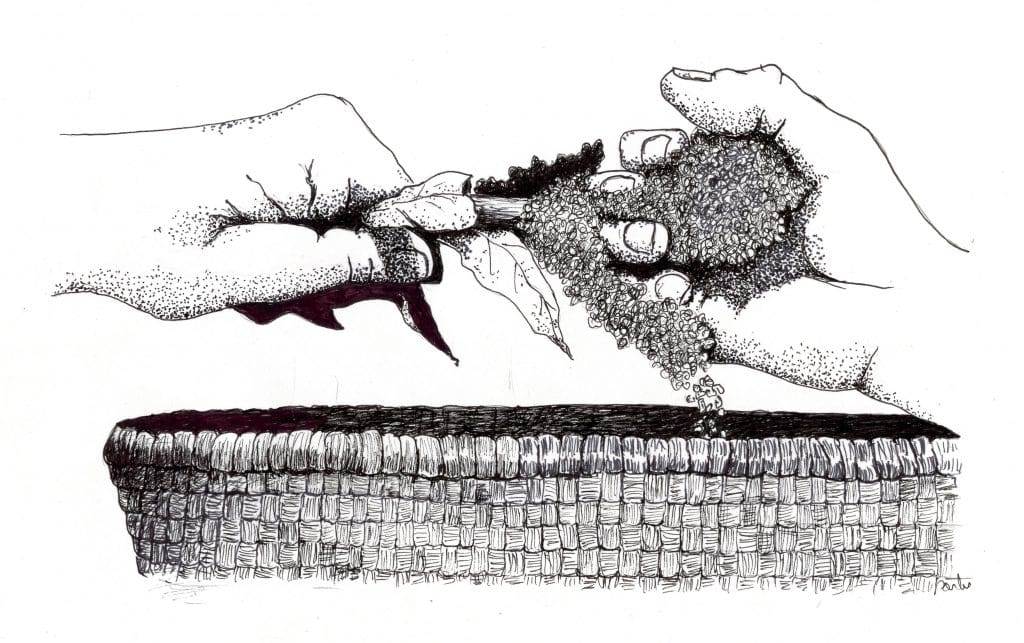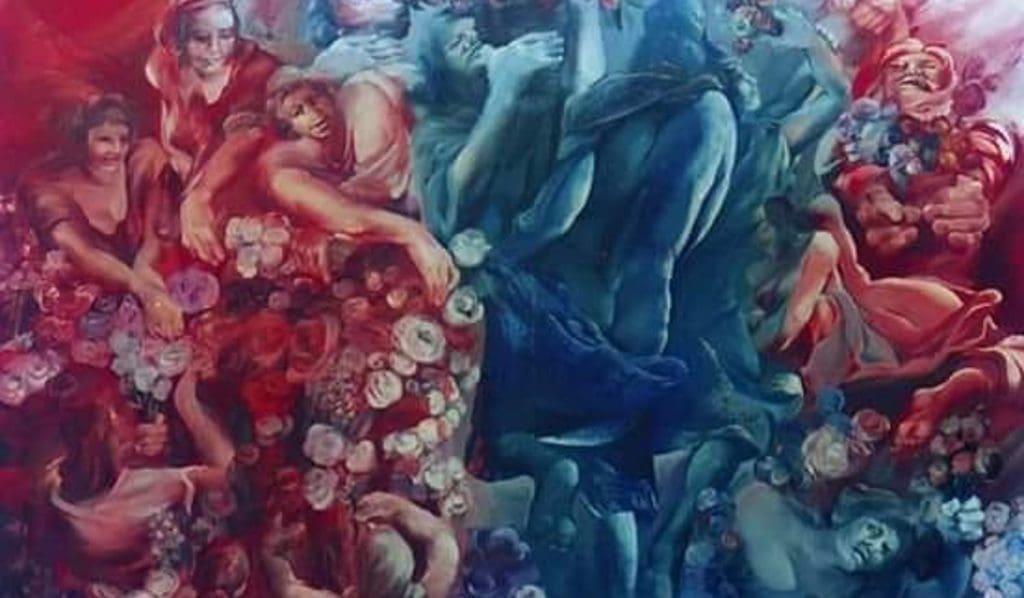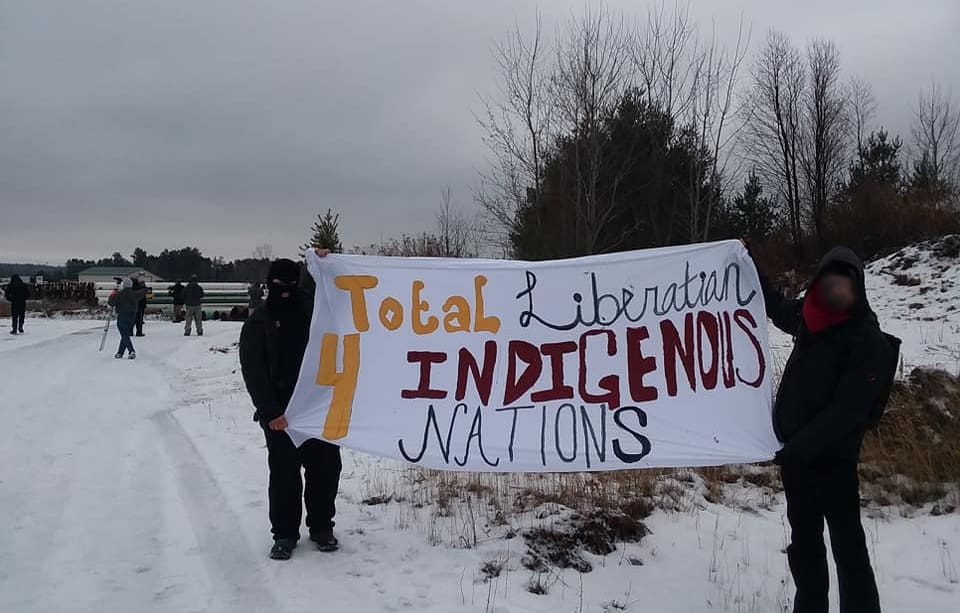Transcribed from the 13 January 2018 episode of This is Hell! Radio (Chicago) and printed with permission. Edited for space and readability. Listen to the whole interview:
We should pay attention to early myths and oral histories. Of course they have to be written down at some point for us to receive them at all. But we shouldn’t give any more credibility to written sources than we give to oral sources that are handed down through word of mouth over many generations.
Chuck Mertz: Humans have always aspired to live under the guiding and comfortable embrace of the state and its stabilizing forces. Or…not. According to our first guest, mostly not. Here to tell us what we know about the first states which will change the way we view our current state, political scientist and anthropologist James C. Scott is author of Against the Grain: A Deep History of the Earliest States.
Welcome to This is Hell!, James.
James C. Scott: Happy to be here.
CM: Great to have you on the show.
First of all, just so everybody understands: what do you mean by “deep” history?
JS: It just means going quite far back in history. There was a movement in the study of history called the Annales School, which was about demography and birthrates and diet—they called that longue durée history. There have been some manifestos written along the lines of “deep history,” an effort to go back to the very earliest states six thousand years ago. An even deeper history, of course—a species history, for example—would go back two hundred thousand years, perhaps.
The point is beginning much earlier than one normally begins history. It’s worth saying that we generally tend to think in terms of a single lifetime, being homo sapiens ourselves; we maybe include our parents’ and our childrens’ lifetimes. Anything more than three generations is deep history for most of us. But we need to have a longer view of what’s happened to us.
CM: Isn’t our study of history limited to the time in which humans were using writing? Without a written historical record, how can we have any knowledge of pre-writing peoples, before states?
JS: That would have been true perhaps thirty or forty years ago, but there have been quite astounding advances in archaeology. For example, one of the texts that I work with is a study of Abu Hureyra (named after the place in Syria where the digging took place); this is a site in which there’s no writing, but it covers the period from hunting and gathering all the way through to the beginnings of agriculture—about two or three thousand years. By carefully examining all the things that remain, they are able to tell us a tremendous amount about their lifestyle, their techniques, the diet of these people. We can learn a lot more from the remains of peoples without writing.
And of course we had oral culture before we had written culture. Many myths, like the epic of Gilgamesh, or the Iliad and Odyssey, were actually oral epics that were later written down. We should pay attention to early myths and oral histories. Of course they have to be written down at some point for us to receive them at all. But we shouldn’t give any more credibility to written sources than we give to oral sources that are handed down through word of mouth over many generations.
CM: But isn’t the oral history that is handed down going to be less accurate than the written history?
JS: The answer is no. That is to say, most of the early writings are hymns of praise for kings or princes or large chiefs. They are genealogies—and in many cases, genealogies made up in order to legitimate the position of a usurper. All those early written texts were written for a particular purpose at a particular time with a particular role in mind, and we shouldn’t give them any more truth value than we give to oral cultures.
CM: If there is so much new knowledge concerning the people even before the first states, what explains to you why we continue to have so many unexamined assumptions about what that life was like? Why are we not changing the way we view earliest life?
JS: That is the job I undertook in this book that we’re talking about. The purpose of Against the Grain is to tell people who haven’t been paying attention (that included me until not so long ago) of all the things we now know about this early period before writing, when the very earliest states were created. By the way, it’s worth noting that we do have a lot of evidence of Mesopotamia, where the earliest states were, partly because they developed cuneiform as a form if writing which was done on clay tablets. The Egyptians, who were somewhat later, wrote on papyrus that doesn’t survive as easily because it’s easily biodegradable.
So we do have a little more evidence for the earliest states of Mesopotamia, and that’s because we have the clay tablets that survived. But a lot of those clay tablets are telling us things—like the epic of Gilgamesh—that were oral stories that people recited before there was writing.
CM: You write, “Sedentism and the first appearance of towns were typically seen to be the effect of irrigation and of states. It turns out that both are, instead, usually a product of wetland abundance.”
Did humans organize in towns prior to the advent of the state? How much does our history show that humans have been able to organize ourselves, even in towns, without a state?
JS: That’s a great question, and it’s really important. Until not so very long ago, people assumed that the climatic conditions in the Tigris and Euphrates valleys were as arid as they are now. And there is evidence, of course, of irrigation. But the irrigation occurs rather later than was originally thought.
The fact is that the water level of the Arabian Gulf was three hundred feet higher than it is today, because of glacial melt in 6,000 BC, and therefore the area that is now dry was this wetland area with a tremendous amount of variation from place to place, and lots of different ecosystems. This meant that you could stay within a fairly small area and have a tremendous number of food resources: fish, shellfish, birds, migrating animals, and so on.
So as you indicated, the fact is that there were towns of a thousand or two thousand, or even three thousand people, well before anything that looks like a state, a kingdom, a dynasty, or the things that we associate with later civilizations.
CM: Do we have any sense of how those towns worked? Or if they were efficient or sustainable without the state? Is a state the “next evolutionary step” of towns that were not as efficient or organized as they had been in the past?
JS: States are certainly more efficient in creating the surplus that’s extracted from cultivators in order to support a class of scribes and elites and so on who are not gathering food. So the state is efficient at reproducing the state. The state is not necessarily more efficient at organizing subsistence.
One of the reasons why states did not arise was because it was possible for people to move easily from one place to another and to have a perfectly abundant subsistence over time, so they saw no reason to hand over any part of what they gathered to authorities or chiefs.
There was trade, by the way, and that’s rather important. These towns that we talk about that were around prior to the existence of states—there’s a debate about how they were run, and most people think that they were like small-scale merchant towns that were trading goods from one area to another. So for part of the year the place was wet enough that there could be trading canoes and rafts going from one town to another, and these towns were small-scale commercial centers without any permanent authority (although they obviously had some powerful people in them).
A lot of populations that have been thought of as primitive populations that never “discovered” planting—so-called “Stone Age” populations—are in fact people who did know how to plant and may have planted a portion of their subsistence, historically, but who left planting in order to get away from the taxation of a state and from the control and forced labor that a state would impose.
CM: You write, “Agriculture, it was assumed, was a great step forward in human well-being, nutrition, and leisure. Something like the opposite was initially the case. The state and early civilizations were often seen as attractive magnets, drawing people in by virtue of their luxury, culture, and opportunities—in fact, the early states had to capture and hold much of their population by forms of bondage and were plagued by the epidemics of crowding.”
To what degree, then, were early states akin to prisons? Were citizens not really citizens but people being held against their will?
JS: The problem of the early states was a problem of keeping population, not of attracting it. It is true that states were places in which it was possible for people to make a career in the clergy or as a merchant or scribe, so for the top fifteen percent of that population this was a good place to be. And those people were, in a sense, the strongest partisans of state formation.
But here I also want to refer to the fact that a whole series of infectious diseases sprang into being that had never existed before, that had to do with the proximity of domesticated animals and large numbers of human beings together—that’s where most of our infectious diseases come from.
There was also the narrowness of the grain diet (in the case of Mesopotamia, wheat and barley). The diet was more restrictive, there was more disease, and rates of mortality were rather high—and there were crop failures as well. So the early states were always in danger of losing their populations. They could run away. The reason these states weren’t like prisons was because it wasn’t too hard to run away.
It was harder in Egypt, I gather, because it was surrounded by deserts even then. But in Mesopotamia, the population both died relatively early and could also run away when it felt the taxes were too high and so on. That’s why it was a surprise to me to find that almost all of these early states were slaving states. That is to say, their wars were wars intended to capture people who they could then relocate back to the center. This was their way of trying to solve the population problem.
The result was that in most of these places, at least twenty percent of their population (and in the cases of Athens and others, sixty or seventy percent) were in fact an enslaved population that had been captured by warfare.
CM: You write, “I ask whether those populations that remained outside state centers for millennia after the first states were established may not have remained there—or fled there—because they found conditions better. All of the implications I draw from my reading of the evidence are meant to be provocations. They are intended to stimulate further reflection and research.”
How much are we, today, potentially, suffering from a legacy of any conflict between populations choosing to live in city centers, in states, and those who wished to live outside of the state? Does all of human history come down to the conflict between the civilized state and the barbarians in the hinterland?
JS: That would be a strong claim that I would probably be shy about endorsing entirely. It’s fair to say that the state did not become the dominant institution of political organization until maybe 1600 at the latest. If we’re interested in whether and when the state became a permanent feature of everyone’s life, the question to answer is how much of the world’s population experienced regular tax collection. My answer is that until 1600 it was unlikely that most of the world experienced this at all. It’s only after that that the state becomes almost inescapable in the West, and in places like southeast Asia and Latin America, it becomes inescapable at a later date—in southeast Asia, only after the Second World War.
My argument here and elsewhere is that a lot of populations that have been thought of as primitive populations that never “discovered” planting—so-called “Stone Age” populations—are in fact, the more we’ve learned about them, people who did know how to plant and may have planted a portion of their subsistence, historically, but who left planting in order to get away from the taxation of a state and from the control and forced labor that a state would impose.
So my argument is that most of the so-called “barbarians” outside states’ gates, through most of history, are people who ran away from states rather than people who have never been exposed to them.
A French anthropologist named Pierre Clastres worked in Latin America with these groups who were seen as Stone Age survivors—the Siriono, the Yanomami, the Guaraní—and he was the first person to suggest (and it’s later been shown) that these were people who knew how to plant and had planted, but who ran away and became foragers in the forest in order to escape the forced labor and disease that they associated with the Spanish and Portuguese mission and military stations.
CM: But there’s this sense within our understood history (that isn’t necessarily accurate) that all humans aspire to get out of the forest and live in some sort of state. How much evidence is there that those who lived outside the state lived in a horrible life of exile, precarity, chaos, and violence?
JS: If you compare skeletons of people who died at roughly the same time, and you want to know which of these skeletons was in an early agrarian society and which was outside that society—a hunter/gatherer/forager—then the forager skeletons are both longer (that is to say, taller) and their bones show almost no evidence of nutritional deficiencies. The people in the agricultural zones are both shorter—showing a kind of stuntedness and a restricted diet—and show bone signatures of nutritional deficiencies that come from a largely grain-based diet.
For me, the great surprise of doing this research and trying to write what we now know about the earliest states was the fact that we have evidence that people had domesticated plants, and actually planted them, in 9,000 BC. The story of civilization is a story that essentially claims that once we discovered we could domesticate grains we wanted nothing more than to be able to settle down and stop roaming, that we then became planters, and that the agricultural life is a superior life in terms of leisure, nutrition, and so on. The fact is that the evidence of these first domesticated plants occurs four thousand years before anything like an agricultural community living largely by planting pops into view.
So the question I try to explain is why the possibility for planting existed for four thousand years before it became widespread.
The world of spirits in nature in pre-monotheism is a view of nature that is more likely to be respectful of the limits of nature and the rhythms of the natural world, both out of self-interest and out of a respect for nature’s own agency.
CM: Does domestication begin with agriculture becoming a sellable commodity, something that can be put into market? Does private ownership and the market create domestication?
JS: No. The more one looks into this, the more it becomes difficult to discern the differences between domesticated and undomesticated plants; there are a lot of different shades of domestication. There are wild stands of wheat that you can still find in Turkey, from which you can harvest enough in three weeks to feed a family for a whole year. What people did was replant some of that close to their domicile over time; they would save the seeds that didn’t fall off and that could then be easily threshed; they would save the ones that were large seeds. The domestication of plants is a long process.
The problem is that if you are actually planting in plow agriculture, with the plow animals that we associate with early agriculture, it’s a lot of labor. If you are living in an abundant wetland with lots of wild game and migrations, you can actually live a life with a more varied diet and much less work without undertaking plow agriculture. The drudgery of work, of plow agriculture, was only resorted to when there was either coercion by states or a decrease in wild game and an increase in population.
There are some problems that I can’t solve in this book because the archaeologists are still debating them. Why planting became more generalized over time is something that’s very much in dispute. Some claim it’s because the population got so dense that you had to make more out of a smaller piece of land; some claim that large game was hunted out—that’s certainly true in the New World—and some people claim that this had to do with states corralling and collecting population and holding it in the state core.
But it’s clear that this is the back-to-the-wall theory of the adoption of agriculture, and all of these different hypotheses are explanations for why people were forced into the extra labor of agriculture against their will.
CM: How much does belief in the narrative of the progress driven by domestication lead to a belief that controlling the world, instead of working with the world, is what’s best for humans? Does belief in the domestication narrative teach us that the world is ours to do with what we want, and ignore any potential consequences?
JS: That’s a beautiful question; it’s not one that I tackle, but I’m glad you brought it up, because it’s extremely important. This question of man as the owner of the natural world, able to shape it to his will and according to his desires—a lot of people would claim that this is actually a product of monotheism, of the urban religions that grew up in the Middle East: Christianity, Islam, Judaism; Buddhism would be part of that as well. There is an argument that the idea of a single god who gives man dominion over nature (which is true of the Judeo-Christian and Islamic heritage, because they derive from the same sources) results in the domination of nature.
What’s interesting about animism or paganism—the pre-monotheistic religions—is that the world is, if you like, enchanted. That is to say, every hill, every stream, every rock has a spirit of its own. Every river, every natural object has a spirit that has to be somehow taken account of or placated. Of course hunters and gatherers pay close attention to nature in a way that agriculturalists don’t have to. But I would argue that the world of spirits in nature in pre-monotheism is a view of nature that is more likely to be respectful of the limits of nature, that is to say, foragers will only hunt males, or will preserve small fish so that they will be around for a sustainable yield much later. There’s a sense of respecting the natural limits and rhythms of the natural world, both out of self-interest and out of a respect for its own agency.
CM: You write about how we understand the power of the state, especially through the way that we’re taught history. How much do we overstate and exaggerate the power of early empires like those of Greece or Caesar’s Rome or Alexander’s Macedonia? And how does that affect the way we view the state?
JS: Here we get into narrative and how we learn about civilizations, and of course our museums and our history books are saturated with what we learned from the written records and the objects and the stone monuments that were characteristic of early civilizations. I have a way of putting this: if you build in permanent materials like stone and masonry, in a single place, and you create a concentrated area of monuments, then you get a lot more pages in the history books, partly because you created the archaeological sites and objects that then make it into the museums. It may be true, in a case like that, that there is a much larger population spread over the countryside that builds in biodegradable materials and spreads its trash widely, and they don’t get any pages in the history books because they’re not, well, collectible.
Our histories are systematically biased against non-state populations who don’t leave the writing and the physical remains that are so important for that narrative of the earliest civilizations. And of course they may have been incredibly sophisticated people as well, in terms of technology and metallurgy. We know enough about that now to find places in southeast Asia where very sophisticated metallurgy and pottery was taking place, but there were no states.
CM: You write, “If the formation of the earliest states were shown largely to be a coercive enterprise, the vision of the state (one dear to the heart of such social contract theorists as Hobbes and Locke) as a magnet of civil peace, social disorder, and freedom from fear, drawing people in by its charisma, would have to be reexamined.”
To what degree is the state today still protecting us from those on the periphery, and to what degree is the state today, in your opinion, causing more chaos than those on the fringes who still oppose, at least relatively, a modern, sedentary life?
JS: The oldest state project in the world is to collect people and force them to live in a fixed place. Every time we have taken mobile people—pastoralists or foragers, hunters, and gatherers—and forced them to settle down, we’ve found ourselves with a small war on our hands. Most Native American tribes were only “settled” as a result of defeat in war. So the idea that they couldn’t wait to be settled and become agriculturalists doesn’t make any sense at all in terms of that particular history.
I would say, however, that non-state peoples today are relatively powerless vis-à-vis states. States now have what I think of as distance-demolishing technologies—tanks and all-weather roads and drones and military hardware—that allow them to project their power even into jungles and mountaintops and swamps and so on. I think of this as the last enclosure movement, and there are still non-state peoples, but they are diminishing and they are habitually on the defensive.
If people picked up the New York Times today, several bombs exploded in Chile in connection with the Pope’s upcoming visit, and it appears that part of this was an effort by militant activists to defend the Mapuche, who are a non-state people whose lands are threatened by loggers and hydroelectric sites. The world of non-state peoples is diminishing, or in many cases they’ve simply disappeared.
CM: In a review of your book at the Nation, Samuel Moyn writes, “Scott’s view of the state has always been attractive to some leftists who have found solace in its depiction of the microscopic possibilities of flouting a state power that they cannot overthrow. But Scott has also proved popular with another group: economic libertarians. They understand that he is their ally. Reading him with a squint, they appreciate his vociferous critiques of state power as abetting their own dreams of freedom. Scott is visibly nervous about this fan club, since even after he gave up any flirtation with Marxism, he has always viewed free markets as breeding their own sorts of hierarchy and oppression.”
So who would you rather have in your fan club? Libertarians or anarchists?
JS: I’m going to allow you to force me into that corner, as if I had to choose, and the answer would be anarchists. My quarrel with libertarians (although in a Venn diagram I share some of my views with libertarians) is that libertarians, as near as I can tell, have no problem with massive differences in wealth and power in terms of the distribution of property, which, from my particular point of view, means the absolute corruption of democracy. So it seems to me that it’s impossible to have the kinds of freedoms that democracy has to offer in a libertarian world in which difference and disparity in wealth and power that can be used to buy political influence is somehow excused.
My quarrel with anarchism is that I don’t think we can live without the state. The abolition of the state is a sort of fantasy, and a sort of utopian one, by the anarchists. I think it’s unachievable. So we will live with the Leviathan, we will live with the state, and the great task is to try to tame it. Alas, I’m not very optimistic about our ability to do that, so I’m left in a rather pessimistic position of not thinking we can get rid of it, and also not thinking that we appear to be on our way to taming it and making it do our bidding for an entire people rather than a small elite.
CM: Thanks so much for being on this week’s show.
JS: Thanks a lot, it was my pleasure.
Featured image: drawing of wild edible seed harvesting by Larry Porter





